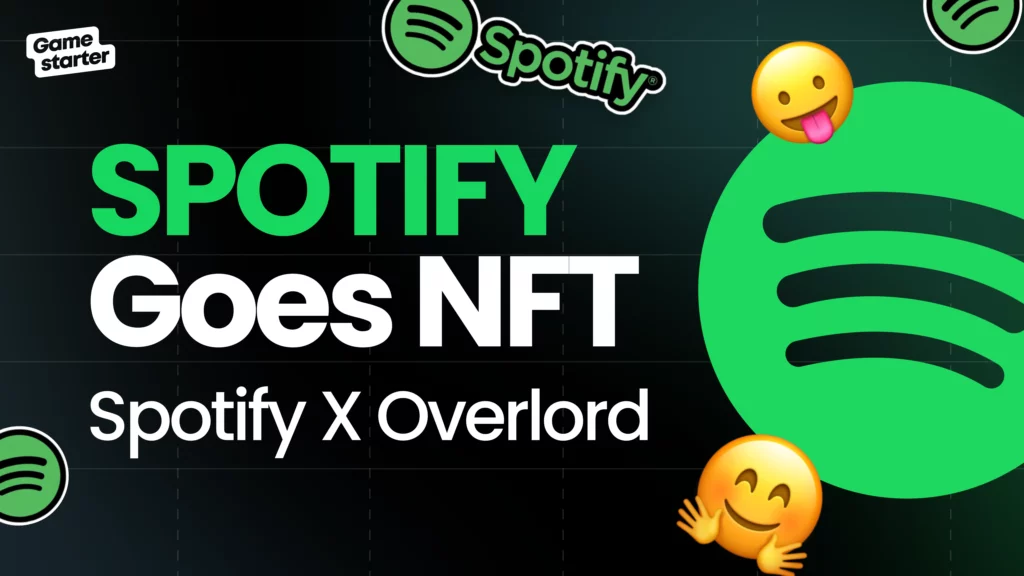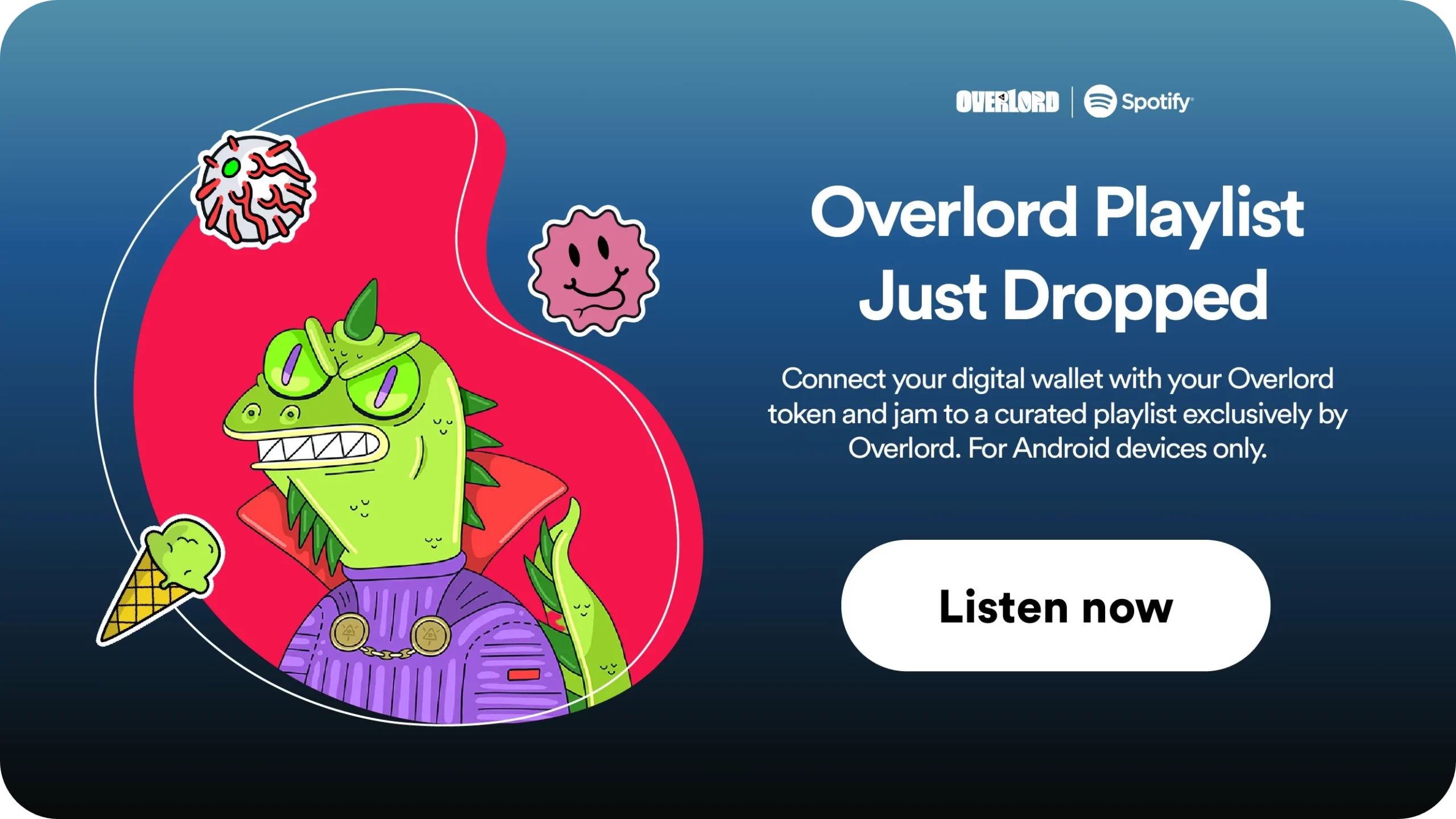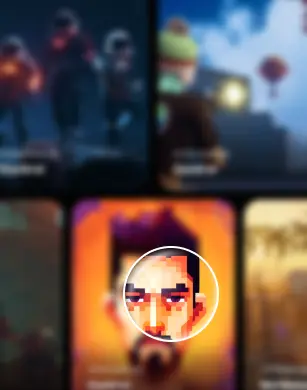Crypto Harmonies: Spotify’s New NFT Playlists



Become part of exclusive group that shapes GS Future
Spotify, the internationally acclaimed music streaming service, is venturing into the realm of digital assets with its latest pilot feature, “token-enabled playlists.” This initiative aims to offer exclusive playlists to users who own specific non-fungible tokens (NFTs). Currently available only to Spotify Premium subscribers in selected regions like the U.S., U.K., Germany, Australia, and New Zealand, this feature is primarily focused on the Android platform. To avail themselves of this exclusive content, users must link their cryptocurrency wallets to their Spotify accounts.
Spotify and Overlord Join Forces
To bring this groundbreaking feature to life, Spotify has entered into a strategic partnership with Overlord, a startup that specializes in cryptocurrency-based services. The collaboration aims to explore the untapped potential of integrating NFTs into music streaming platforms. This not only adds value for NFT holders but also provides artists with an innovative medium to connect with their fans. The pilot program is scheduled to last for three months, and its success could pave the way for broader applications, potentially revolutionizing the interaction between digital assets and mainstream platforms.
 Source: https://twitter.com/Overlord_xyz/status/1628485145706614792
Source: https://twitter.com/Overlord_xyz/status/1628485145706614792
Future Implications and Considerations
The integration of NFTs into Spotify’s platform is a significant move, especially considering the growing prominence and adoption of digital assets. This initiative could unlock a plethora of opportunities for both artists and consumers. For artists, it could serve as a new revenue stream by offering exclusive content to NFT holders, thereby deepening the artist-fan relationship through added layers of exclusivity and engagement.
However, this venture is not without its challenges and questions. One of the primary concerns is the potential for creating a two-tiered system that could marginalize those unable to afford NFTs. It’s important to note that the feature is currently limited to Premium subscribers, adding another financial barrier to entry.
Moreover, the integration of NFTs into music streaming could attract regulatory attention. Regulatory bodies may scrutinize whether owning a digital asset for the purpose of gaining exclusive content access aligns with existing or forthcoming legal frameworks. As the NFT market is still in its infancy, comprehensive guidelines on how these digital assets should be managed in various contexts are yet to be established.
Spotify’s pilot program for NFT-enabled playlists marks a significant milestone in the convergence of digital assets and mainstream media. While the initiative offers promising opportunities, it also calls for a meticulous evaluation of its economic, social, and regulatory ramifications.
As the trial unfolds, ongoing monitoring will be essential to understand its impact on both the digital asset ecosystem and the broader landscape of media consumption.

are registered trademarks. All rights reserved.
















